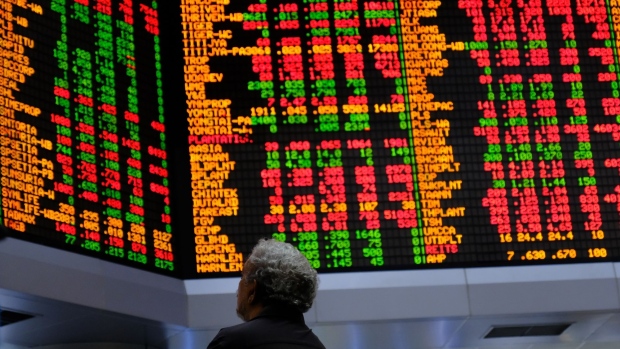Jul 14, 2020
IPOs boom with pandemic's lasting effect on how deals get done
, Bloomberg News

Equity issues are surging to a record high and projected to stay strong for the rest of 2020 even as the pandemic upends traditional in-person marketing junkets.
The initial public offerings process-- not just how deals are getting done but also how they’re structured -- has adapted in ways that will change capital markets for years to come.
Instead of companies shuttling between cities and sometimes continents to meet investors, roadshows have gone virtual and are now often shortened to four to five days from seven to eight. Meanwhile, more informal test-the-waters meetings have lengthened and prospective investors are indicating their interest earlier.
“Investors are realizing the IPO roadshows are becoming more condensed from a time standpoint, which puts more importance on the testing the waters interactions with investors in advance of the IPO launch,” said Ryan Parrish, head of Bank of America Corp.’s Americas equity capital markets syndicate.
While these meetings are similar to a formal roadshow, no official orders for shares are taken. The U.S. Securities and Exchange Commission amended rules last year to allow all companies to have these meetings, which were previously only available to emerging growth companies.
Their purpose can also be to find potential cornerstone or anchor investors to secure commitments before formal book building starts. That can smooth the first few months of trading, allocating more stock to large investors who are less likely to sell right away.
ZoomInfo Technologies Inc., a business intelligence company that went public last month, received commitments from BlackRock Inc., Fidelity Investments and Dragoneer Investment Group LLC for as much as US$300 million combined in advance. Cornerstone investments have long been common in listings across Asia, but have been less popular in the U.S., especially on competitive technology offerings.
Commitments can take the form of an anchor investment, which is a large order in the IPO, for investors who want to avoid triggering an immediate regulatory disclosure.
Most listings now attract significant indications of interest from investors before the deal launch, said Will Connolly, head of technology ECM at Goldman Sachs Group Inc. That wasn’t common before the pandemic.
Debut Pops
Anchor deals have helped bring back the feted IPO pop, when a company’s shares skyrocket from the offering price on their debut.
All but eight of the 37 U.S. IPOs that raised at least US$100 million since mid-March saw their shares jump by at least double-digits from their offer prices after the first day of trading. Only one major listing, private equity-backed supermarket chain Albertsons Cos., didn’t price within or above the marketed range.
So far this year, Agora Inc., a Chinese video call service, rose 153 per cent for the biggest pop at the close of its first day of trading. On Tuesday, financial services company nCino Inc. rocketed as much as 173 per cent from its offer price in its trading debut. The shares were up 168 per cent at 1:11 p.m. in New York, giving the company a market value of US$7.4 billion after its US$250 million IPO.
Despite steep drops in March when the U.S. locked down, the Nasdaq Composite Index and S&P 500 are now both hovering around their all-time highs. As the equity markets roared back, equity issuance in the second quarter exceeded US$130 billion, the most active on record. That compared to US$41 billion in volume in the first quarter.
In June, new listings, including those by blank-check firms, and follow-on offerings raised a combined US$67 billion.
Record follow-on trades were led by PNC Financial Services Group Inc., which in May sold its US$14 billion stake in BlackRock Inc., and Sanofi raising US$11.7 billion by selling its holdings in Regeneron Pharmaceuticals Inc.
Look Ahead
Despite a presidential election looming, it could be an unusually busy third quarter.
Palantir Technologies Inc. announced this month it has filed confidentially with regulators for a public stock listing, a major step toward a market debut that has been many years in the making. The company has been weighing a direct listing instead of a traditional IPO, people with knowledge of the matter have said. The parent company of the mortgage giant Rocket Mortgage and Quicken Loans is also on deck.
“If the market remains healthy and strong, more people will try in September as an opportunity in front of the election,” said Colin Stewart, ECM vice-chairman at Morgan Stanley.
Other areas that should remain hot are IPOs by biotechnology firms and blank-check companies. Jordan Saxe, Nasdaq’s head of health-care listings, expects about 45 to 50 biotech listings this year, raising over US$9 billion combined. Saxe had earlier forecasted 30 to 35 listings raising US$3.5 billion.
For blank-check deals, the largest one on-record is close to pricing within days. It’s the special purpose acquisition company, or SPAC, backed by billionaire investor Bill Ackman. Pershing Square Tontine Holdings Ltd. could raise US$4 billion from an IPO this week.
SPACs used to be viewed as an IPO last resort, which isn’t the case anymore, said Barbara Ard, who leads accounting and transactions services at MorganFranklin Consulting. “It’s now just a different way to get access to capital.”
While bankers trickle back into some offices in New York and other U.S. finance centers, some plans are being postponed while COVID-19 cases surge in certain states. But that’s unlikely to hurt activity, advisers said, as they have had several months to adapt to the new way of getting deals done.
“An IPO can be done virtually,” said Greg Chamberlain, head of JPMorgan Chase & Co.’s U.S. technology, media and telecommunications equity capital markets. “The process changes, evolves and innovates.”





